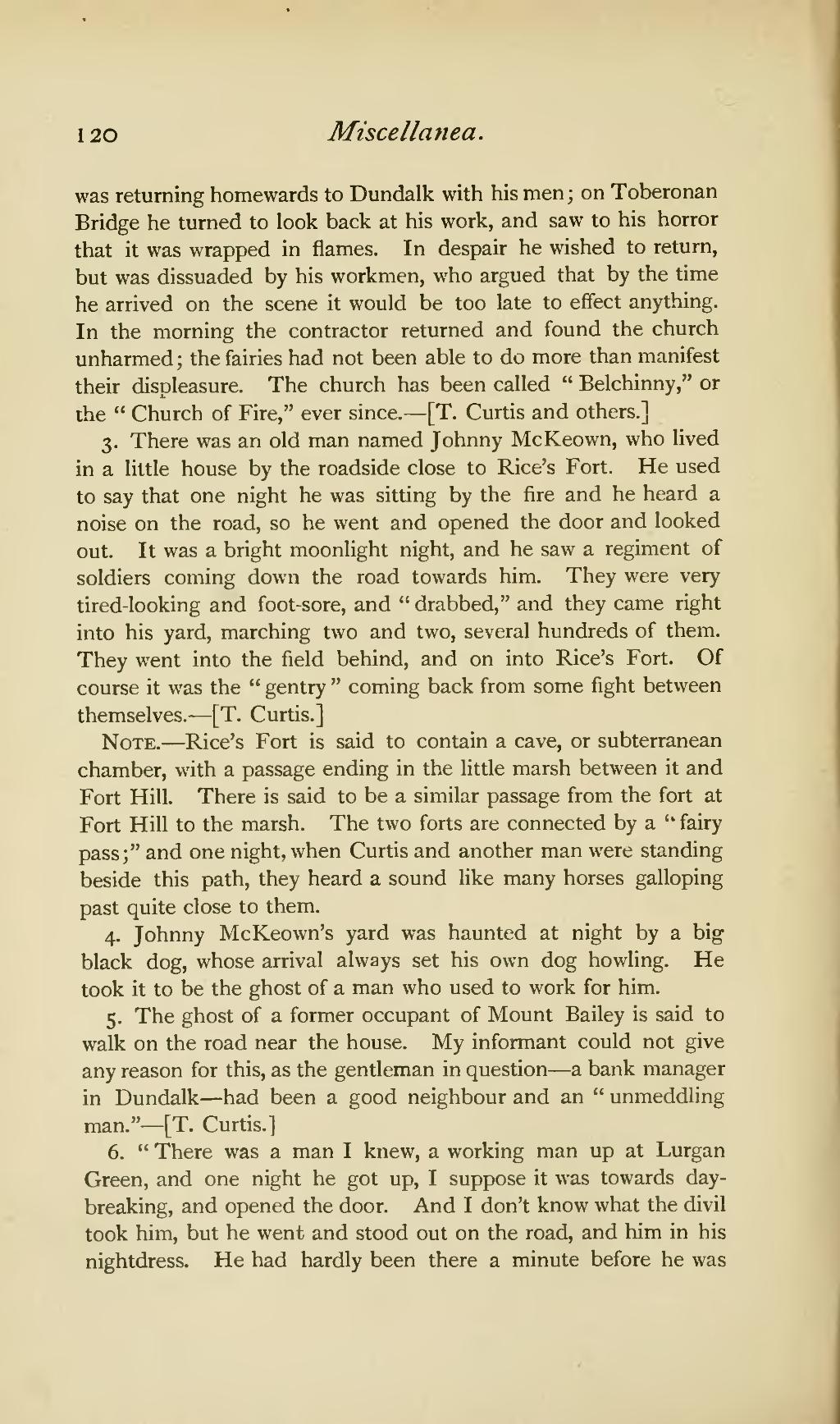was returning homewards to Dundalk with his men; on Toberonan Bridge he turned to look back at his work, and saw to his horror that it was wrapped in flames. In despair he wished to return, but was dissuaded by his workmen, who argued that by the time he arrived on the scene it would be too late to effect anything. In the morning the contractor returned and found the church unharmed; the fairies had not been able to do more than manifest their displeasure. The church has been called "Belchinny," or the "Church of Fire," ever since.—[T. Curtis and others.]
3. There was an old man named Johnny McKeown, who lived in a little house by the roadside close to Rice's Fort. He used to say that one night he was sitting by the fire and he heard a noise on the road, so he went and opened the door and looked out. It was a bright moonlight night, and he saw a regiment of soldiers coming down the road towards him. They were very tired-looking and foot-sore, and "drabbed," and they came right into his yard, marching two and two, several hundreds of them. They went into the field behind, and on into Rice's Fort. Of course it was the "gentry" coming back from some fight between themselves.—[T. Curtis.]
Note.—Rice's Fort is said to contain a cave, or subterranean chamber, with a passage ending in the little marsh between it and Fort Hill. There is said to be a similar passage from the fort at Fort Hill to the marsh. The two forts are connected by a "fairy pass;" and one night, when Curtis and another man were standing beside this path, they heard a sound like many horses galloping past quite close to them.
4. Johnny McKeown's yard was haunted at night by a big black dog, whose arrival always set his own dog howling. He took it to be the ghost of a man who used to work for him.
5. The ghost of a former occupant of Mount Bailey is said to walk on the road near the house. My informant could not give any reason for this, as the gentleman in question—a bank manager in Dundalk—had been a good neighbour and an "unmeddling man."—[T. Curtis.]
6. "There was a man I knew, a working man up at Lurgan Green, and one night he got up, I suppose it was towards day-breaking, and opened the door. And I don't know what the divil took him, but he went and stood out on the road, and him in his nightdress. He had hardly been there a minute before he was
